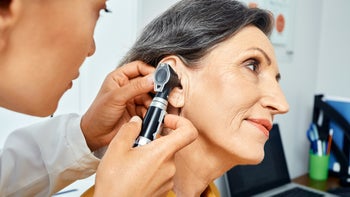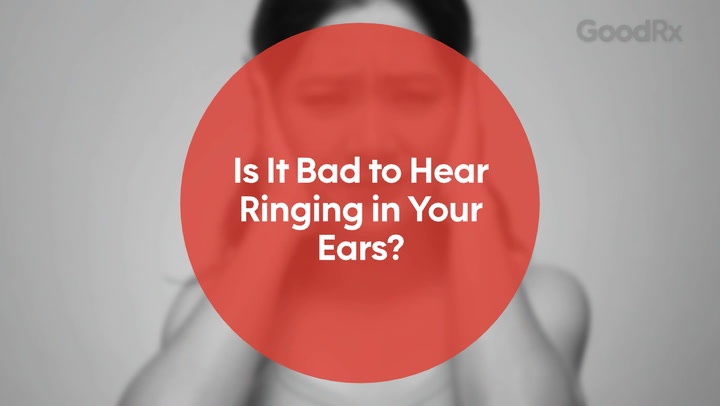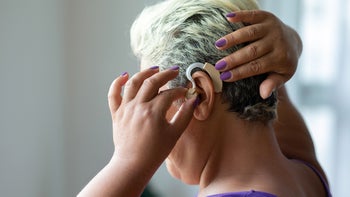
10 Ways to Save on Hearing Aids
Key takeaways:
Prescription hearing aids cost between $2,000 and $7,000 for a pair, while over-the-counter options are generally less than $1,000.
Government programs such as Medicaid, nonprofit organizations, or tax savings accounts can offset the high costs of hearing aids.
Check if your health insurance covers hearing aids, consider buying over-the-counter versions, and see if your state has resources to help you save money.
Table of contents

Hearing loss is a common issue, especially among older adults in the U.S. However, only about 1 in 5 people who could benefit from hearing aids actually seek help. The reason behind this gap? The lack of access and the high cost. What’s more, original Medicare does not cover hearing aids.
The good news is that there are programs to help pay for hearing aids. In some cases, you might even get your hearing aids for free.
How much do hearing aids cost?
Prescription hearing aids can be quite expensive, ranging from $2,000 to $7,000 for a pair. Factors such as their size, type, and level of technology affect the price.
Prescription Savings Are Just the Beginning

Invisible hearing aids, such as in-the-canal (ITC) or completely-in-canal (CIC) styles, generally cost more than behind-the-ear styles. Rechargeable and Bluetooth-enabled devices also come at a higher price point.
In addition to the hearing aids, you may need a medical exam, fitting, programming, and adjustments, which can add to the total cost.
Over-the-counter (OTC) hearing aids are more affordable than prescription ones. Some of the most inexpensive models of OTC hearing aids cost around $99 for a set. But most cost between $500 and $1,000 per pair.
Unfortunately, original Medicare doesn’t pay for hearing aids. However, certain Medicare Advantage plans and other private health insurers may provide coverage.
Are there programs that will help pay for hearing aids?
Yes. The high out-of-pocket costs of hearing aids often put them out of reach for many people. However, there are programs to help make affordable hearing aids more accessible. Here are 10 ways to save on hearing aids:
1. Consider a Medicare Advantage plan
If you have Medicare and need help paying for hearing aids, original Medicare won’t cover any of those costs. But many Medicare Advantage (MA) plans include hearing aid coverage as an added benefit.
Get the most out of your hearing aids: You’re not alone if you’ve struggled with your hearing aids. Here, read expert tips for better comfort and clearer sound quality.
FSA eligible: You can use an FSA or HSA to pay for hearing aids and related eligible expenses, such as batteries. Find out what you should know before you purchase.
Can you deduct hearing aid costs? If you meet certain requirements, you can deduct the costs of your hearing aids on your tax return. Here’s what to know before you file.
These MA plans usually pay for a hearing test, but they may limit how much they'll pay for hearing aids. Some MA plans may require you to pay a copay per hearing aid. You may also need to pay a fee for the fitting.
If you want to join a Medicare Advantage plan with good hearing aid coverage, ask important questions first, including:
Exactly what hearing aid expenses are covered?
Is there a provider network, or can I see any specialist?
What are my copays for appointments and devices?
How much will my monthly premiums be?
Read more like this
Explore these related articles, suggested for readers like you.
2. See if you qualify for Medicaid
Medicaid is another source of help to pay for hearing aids if you’re eligible and depending on the state where you live. Medicaid is the joint federal and state health program for low-income individuals and families.
Because Medicaid coverage differs by state, benefits range widely. However, several states offer hearing aid coverage with limitations.
Check the Hearing Loss Association of America’s listing to determine if Medicaid hearing aid benefits are available in your state.
3. Look into nonprofit organizations
In addition to government programs, many nonprofit groups offer help covering hearing aids for people struggling financially. Some include:
These organizations have programs where you can receive discounted or free hearing aids. Other nonprofits help connect people to gently used, recycled hearing aids. These types of charities may have restrictions and eligibility criteria you must meet based on your needs, income limits, and residency status.
The Hearing Industries Association offers a guide with resources for people looking for help with the costs of hearing aids.
4. Contact the Veterans Administration (VA)
Veterans can receive free hearing aids and related supplies, fittings, and follow-up care from the Department of Veterans Affairs (VA).
To start the process of obtaining free hearing aids through the VA, you’ll need to sign up. You can do this in several ways:
Register at any VA Medical Center or clinic in person.
Enroll online by filling out VA Form 10-10EZ electronically.
Print and mail a completed Form 10-10EZ to your local VA facility.
In all cases, you’ll need to provide:
Copy of your Veterans DD214
Photo ID
Any health insurance cards you have
Once registered in the system, schedule a hearing test visit. The VA audiologist will evaluate the results and recommend treatment options. If they determine you need hearing aids, you won't have to pay for them, repairs, or future batteries as long as you stay eligible for VA care.
5. Check private insurance plans
Private insurance companies don't generally cover hearing aids because they consider them optional. However, more and more employers and insurers are adding partial or full hearing aid coverage to their policies.
For example, at least 27 states, including Texas, Tennessee, and Georgia, have laws that require health plans to cover hearing aids and related services for children. For adults, only five states legally mandate that insurers include hearing treatment and technology, such as hearing aids. These states are:
Arkansas
Connecticut
Illinois
New Hampshire
Rhode Island
If you have employer-based or private health insurance, call the member phone number on your insurance card. Ask about any hearing aid coverage offered and what your benefits are.
6. Use HSA or FSA
Consider taking advantage of your health savings account (HSA) or flexible spending account (FSA). These special accounts let you set aside pretax dollars to spend on qualified medical expenses, including hearing aids. This lowers your overall taxable income for the year.
According to IRS Publication 502, you can use an FSA or HSA to help you pay for hearing aids, batteries, repairs, and maintenance.
7. Buy OTC hearing aids
OTC hearing aids offer an affordable and convenient option without the need for a prescription or audiologist visit. Cleared in 2022 by the FDA, OTC hearing aids can now be purchased directly online or in stores.
OTC hearing aids eliminate professional audiologist fees for evaluation and fitting. However, they’re available only to adults 18 and older, and most models are suitable only for those with mild to moderate hearing loss.
When exploring OTC hearing aids, look for deals. Retailers may have seasonal event discounts or sales during holidays. Check sites routinely for sales around gift-giving occasions, store anniversaries, and inventory clearances.
Ask questions such as:
Do you offer a trial period?
What is your return and refund policy?
What warranty, maintenance, and repair options do you provide?
Can I use my HSA or FSA?
8. Shop around and compare prices
Before picking a hearing aid, check and compare prices at different sellers first. Look at prices from wholesale clubs and online sellers.
For example, a wholesale club such as Costco has great deals on hearing exams, fittings, and hearing aids.
If the exact brand and model you like costs less elsewhere, ask other sellers to match their competitor's rate. Retailers will often negotiate to earn your business.
Ask questions about the return policy, length of warranty, and repair and maintenance options.
9. Ask about a payment plan
A payment plan is another way to ease the burden of paying for your hearing aids. Clinics, distributors, and retailers may offer zero-interest monthly installment plans. Ask about what promotion details apply to avoid surprises down the line.
If you're considering using a credit card, be sure to find out about interest rates and any additional fees. Some credit cards might offer a temporary 0% annual percentage rate (APR), meaning you won't be charged interest for a limited time. To make the most of this benefit, pay off your balance before the 0% APR period expires, as higher interest rates could apply afterward.
10. Explore state resources
Look into the resources available in your state for people who need help accessing hearing aids or services. Certain states have dedicated programs designed to provide support and guidance.
Search for your state agency for the deaf and hard of hearing. These agencies vary in the services they offer from state to state. They help advocate for you. They also share important information and guide you based on your needs.
These resources are not just limited to adults; they are also there to help children get the hearing support they need. Some offer loaner hearing aids, while others help with permanent hearing aids.
If you're still working and require hearing aids to keep your current job or get a new one, contact your state vocational rehabilitation agency. It can offer support in covering your hearing aid expenses.
Can I get hearing aids for free?
Yes. You can get hearing aids for free, but you’ll have to meet some conditions.
Certain health plans, including Medicaid, fully cover the expenses for eligible people with documented hearing loss. This means you can access hearing aids for free through these plans if you qualify.
Some charities take donated hearing aids, refurbish them, and give these reused devices to low-income people for free. You may be eligible for free hearing aids through nonprofit organizations based on financial need.
Don’t forget to ask your audiologist for programs that may offer free or low-cost hearing aids.
Are hearing aids tax-deductible?
Yes. Hearing aids meet the IRS’ definition of a qualified medical expense. This means you can deduct hearing aid costs and related expenses on your tax return. However, you must itemize deductions instead of taking the standard deduction. By itemizing medical expenses, you can generally deduct any amount that exceeds 7.5% of your adjusted gross income (AGI).
Expenses that can be deducted, according to IRS Publication 502, include costs for hearing aids, batteries, repairs, and maintenance. Being able to deduct these expenses reduces your tax bill, saving you more money.
The bottom line
If you need help paying for hearing aids, there are many programs that may be able to help you. Medicaid, Veterans Affairs, and nonprofit organizations can provide discounted or free hearing aids. Also, check with your health insurance and consider using your HSA or FSA. Look into over-the-counter hearing aids and state resources to make hearing aids more accessible.
Why trust our experts?


References
American Academy of Audiology. (2022). State insurance mandates for hearing health / hearing aids.
American Speech-Language-Hearing Association. (n.d.). State insurance mandates for hearing aids.
Everett, C. (2024). 10 best hearing aids of January 2024: Expert reviewed. National Council on Aging.
Hearing Aid Project. (n.d.). Hearing aid resources.
Hearing Industries Association. (n.d.). Your guide to financial assistance for hearing aids.
Hearing Loss Association of America. (n.d.). Medicaid.
Hearing Loss Association of America. (n.d.). State agencies.
Internal Revenue Service. (2023). Publication 502: Medical and dental expenses.
Rehabilitation Services Administration. (n.d.). State vocational rehabilitation agencies.
U.S. Department of Veterans Affairs. (2023). Hearing aids.
U.S. Food & Drug Administration. (2022). FDA finalizes historic rule enabling access to over-the-counter hearing aids for millions of Americans.
U.S. Food & Drug Administration. (2023). OTC hearing aids: What you should know.




























